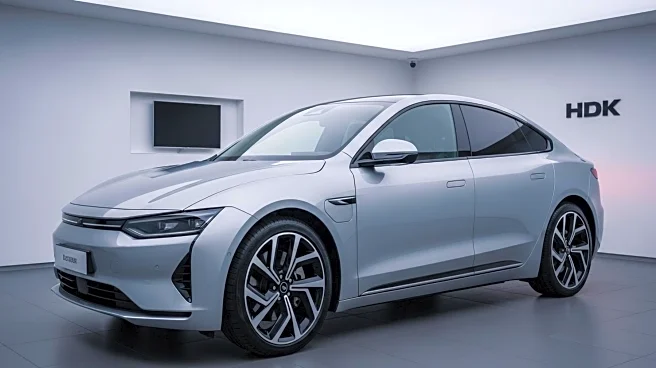What's Happening?
Bentley has announced a delay in the release of its first all-electric model, originally scheduled for 2025, now pushed to 2026. This decision comes as the company faces a dip in demand for luxury electric vehicles, which has not met initial expectations. Bentley, part of the Volkswagen Group, will continue to offer gas-only drivetrains for models like the Continental GT, Flying Spur, and Bentayga SUV, alongside plug-in hybrids and future EVs. The shift in strategy reflects broader trends within the luxury automotive market, where brands like Porsche and Audi are also extending the lifespan of combustion engines due to similar demand challenges.
Why It's Important?
The delay in Bentley's all-electric model highlights significant challenges in the luxury EV market, where consumer demand has not aligned with industry projections. This situation underscores the complexities faced by automakers in transitioning to electric vehicles, particularly in the high-end segment. The decision impacts Bentley's strategic goals and reflects broader industry trends, as other luxury brands like Porsche and Audi also reconsider their timelines for phasing out combustion engines. The shift could influence the pace of innovation and investment in electric vehicle technology within the luxury sector, affecting stakeholders from manufacturers to consumers.
What's Next?
Bentley and other luxury automakers may need to reassess their strategies and timelines for transitioning to electric vehicles. The European Union's planned ban on new internal combustion engine car sales by 2035 adds pressure, although a review of this policy is expected before the end of the year. Automakers might explore maintaining plug-in hybrids as a viable option beyond the current cut-off date. The evolving market dynamics could lead to further adjustments in product offerings and investment priorities, as companies navigate consumer preferences and regulatory landscapes.
Beyond the Headlines
The delay in Bentley's electric vehicle rollout raises questions about the sustainability of luxury brands' commitments to electrification. Ethical considerations regarding environmental impact and consumer expectations may influence future strategies. The divergence between market realities and initial projections could prompt a reevaluation of how luxury automakers balance innovation with traditional offerings, potentially affecting long-term industry trends and consumer perceptions.








